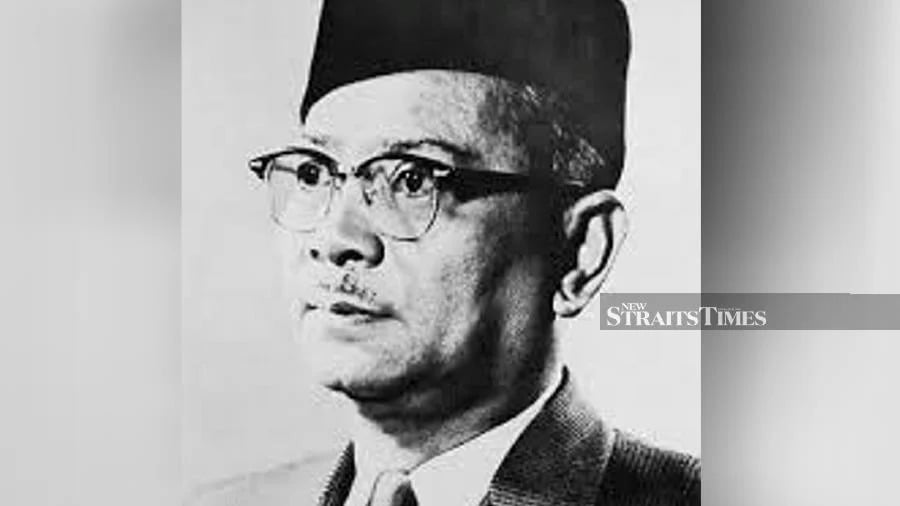Tunku defined what happiness means for people, country

TODAY is the International Day of Happiness, thanks to the initiative of a tiny country, Bhutan, which first proposed the idea in 2011.
In the following year, the United Nations declared March 20 to be that day, as "happiness and well-being are the universal goals and aspirations in the lives of human beings around the world".
The world in general, and Malaysians in particular, should not overlook the fact that long before Bhutan, it was Malaysia that first held out the principle of happiness as the measure of a nation's success.
We are most fortunate to have had a leader — Tunku Abdul Rahman — who provided valuable insight into the nature of happiness.
Long before he became Prime Minister of the Federation of Malaya, Tunku wanted Malaya to be one of the world's happiest countries, a vision he articulated in 1960: "With our unity and co-operation, faith and tolerance for one another, with hard work and glad hearts, we can make our young nation one of the happiest in the world. This is my belief, this is what I live for to ensure peace, happiness and prosperity for our Malaya which we all love so well."
Tunku did not distinguish between personal happiness and the happiness of the people: "Nothing will give me greater pleasure than to see people make merry, take things easy and be happy."
On another occasion, he declared himself to be the happiest prime minister.
"I am happy because the people are happy. Is there anything more that I can wish for?" said Tunku in August 1962 after receiving a rousing welcome in Kuala Lumpur following the successful conclusion of the Malaysia Talks in London.
Many at that time and much later would have looked askance at Tunku for what they may have considered a simplistic view of the developments.
But, the world tends to look at Tunku very differently today — as a charismatic visionary who was well ahead of his time and who succeeded admirably in winning the hearts and minds of his people.
In line with his happiness principle, Tunku favoured policies that he believed would bring the greatest happiness to the greatest number of Malaysians, best expressed in his favourite maxim, "live and let live".
"Foreign visitors have remarked on the happy state of affairs here and attributed this to 'my wise and able leadership'.
"I said that it was mainly due to the desire of the people themselves, whose outlook in life is one of live and let live. I pray and hope that this happy state of affairs will continue for all times," said Tunku.
One of the greatest treasures of our independence era is Tunku's legacy of humour that he used to great effect in gaining independence from the British, drawing the different races and groups together in building a newly independent nation.
The process of nation building in the early years of independence was no easy matter.
The new leaders had to grapple with the grave security situation in the country as well as racial and religious sensitivities.
Despite the hurdles, Tunku managed well, with his ability to put people around him at ease, and bring down barriers.
Members of his cabinet discussed and resolved intricate national problems in a creative and jovial manner.
"In this way, we used to end our cabinet sessions in good humour and with a mutual sense of belonging — one for all and all for the country we love so much," recalled Tunku.
Tunku saw the ability to laugh as an important ingredient in the success of a multiethnic and multireligious society such as ours.
Very often, he pointed out his own shortcomings before anyone else could, and laughed with them before they could laugh at him.
In this way, he skillfully anticipated and deflected the sting of his detractor's criticism.
He also used humour to defuse tense situations. In one instance, Tan Sri Lim Swee Aun, then health minister, absent-mindedly took out and smoked his pipe during the fasting month.
Other cabinet ministers gave him a hard stare, but Tunku simply smiled and remarked, "Don't worry, doctor, keep on smoking. At least I can smell the sweet aroma of tobacco."
Today, as Malaysians, let us rejoice that the world has finally come to rediscover the simple philosophy of happiness that was conceived by none other than our Father of Independence — a great statesman and leader who once distinguished himself as the world's happiest prime minister.
The writer, Prabhakaran S. Nair is former Director of Pustaka Wira Negara, Arkib Negara Malaysia
The views expressed in this article are the author's own and do not necessarily reflect those of the MMKtT.
✍ Credit given to the original owner of this post : ☕ Malaysians Must Know the TRUTH
🌐 Hit This Link To Find Out More On Their Articles...🏄🏻♀️ Enjoy Surfing!



















Post a Comment